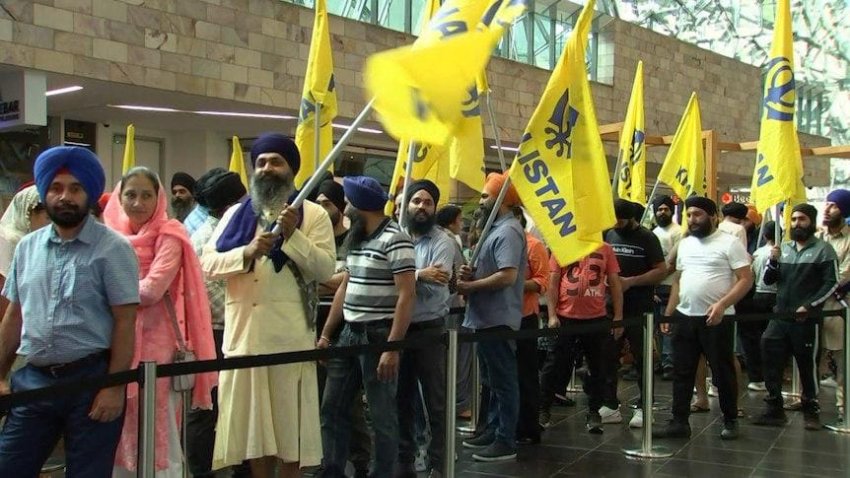
Diaspora politics can often be testy. While China and Iran are seen as the conventional bullies, spying and monitoring the activities of their citizens in various countries, India has remained more inconspicuous. But that is under challenge.
Canadian Prime Minister Justin Trudeau revealed on September 18 that there were “credible allegations” that agents in the pay of the Indian government had murdered Hardeep Singh Nijjar, a vocal supporter for an independent Sikh homeland, the Khalistan.
Deemed by Indian authorities since 2020 to be a terrorist, Nijjar was alone in his truck when he was shot to death on June 18 outside the Surrey temple, Guru Nanak Gurdwara.
While his death remains under investigation by the Royal Canadian Mounted Police, Trudeau was convinced enough time had lapsed to warrant mention.
After all, Pavan Kumar Rai, the Canadian head of New Delhi’s foreign intelligence agency, the Research and Analysis Wing had been expelled by Foreign Affairs Minister Mélanie Jolyas, a direct consequence of the acts.
Trudeau revealed to the House that Canadian security agencies had been pursuing such links between New Delhi and the Nijjar’s death.
“Our top priorities have therefore been 1) that our law enforcement and security agencies ensure the continued safety of all Canadians, and 2) that all steps be taken to hold the perpetrators of this murder to account.”
The matter was raised with Indian President Narendra Modi at the G20 summit.
Trudeau went on to reiterate standard protocols: “Any involvement of a foreign government in the killing of a Canadian citizen on Canadian soil is an unacceptable violation of our sovereignty. It is contrary to the fundamental rules by which free, open and democratic societies conduct themselves.”
Canada’s “position on extra-judicial operations in another country is clearly and unequivocally in line with international law”.
Public Safety Minister Dominic LeBlanc added further detail on the contact between Ottawa and New Delhi.
“The national security and intelligence adviser to the prime minister and the director of CSIS have travelled on a number of occasions in recent weeks also to India to meet their counterparts in India to confront the intelligence agencies with these allegations.”
The Indian response was predictably sharp. New Delhi also expelled a “senior Canadian diplomat”. Prior to that, the Canadian high commissioner to India, Cameron MacKay, was summoned for a meeting, while the Indian Ministry of External Affairs (MEA) expressed the “Government of India’s growing concern at the interference of Canadian diplomats in our internal matters and their involvement in anti-India activities”.
The MEA rebuked Canada for its sympathies for what it called Khalistani terrorists.
“Such unsubstantiated allegations seek to shift the focus from Khalistani terrorists and extremists, who have been provided shelter in Canada and continue to threaten India’s sovereignty and territorial integrity.”
It was also a “matter of deep concern” that “Canadian political figures [had] openly expressed sympathy for such elements”.
New Delhi has long been opposed to the Khalistan movement, which seems, under Modi, to be resurging.
The Conversation noted acts of vandalism against the Indian Consulate in San Francisco in March. It mentioned the activities of a “group of separatists” who had “blocked the entrance to the Indian consulate in Brisbane, forcing it to close temporarily”.
Noting the gravity, the publication also documented attacks on three Hindu temples in Australia, giving Indian Prime Minister Modi the chance to vent to PM Anthony Albanese when he visited in May.
Sydney’s Blacktown City Council cancelled a June 4 booking that would have featured a purely ceremonial, symbolic “Khalistan Referendum”.
A similar event in Melbourne’s Federation Square, an initiative of the US-based Sikhs for Justice, had taken place earlier in the year.
A Blacktown City Council spokesperson described the booking as “in conflict with adopted Council policy” posing “risks to Council staff, Council assets and members of the public”.
A frontline against the Khalistan movement has become violently visible.
While Indian authorities maintain a watch on Sikh activists at home and initiate arrests (this, along with keeping a tight rein on other dissident movements in line with Modi’s all suffocating notion of Hindutva), killings have taken place in other countries.
Paramjit Singh Panjwar, designated the Khalistan Commando Force (KCF) chief, was gunned down in Lahore in May. Indian reports on the killing took a certain glee in the brutal demise of Panjwar, who had “fled to Pakistan in 1990 with the help of its spy agency ISI, which allegedly provided him a safe house in Lahore and a new identity: Malik Sardar Singh”.
Another, Harmeet Singh, leader of the Khalistan Liberation Force, suffered the same fate in January 2020, also on Pakistani soil. His death was put down to either a love affair with a married Muslim woman from Pakistan or a dispute over drug money.
Not to be outdone, certain members of the Sikh diaspora in Britain have expressed concern that the death of Birmingham-based Avtar Singh Khanda remains suspicious.
Khanda is said by Indian security sources to be responsible for grooming the prominent Khalistani separatist Amritpal Singh, who was arrested in April. West Midlands police, however, found nothing to warrant opening an investigation into Khanda’s death.
The same, it would seem, cannot be said about Nijjar, whose assassination has taken some of the shine off Modi’s garish publicity machine.
[Binoy Kampmark lectures at RMIT University.]